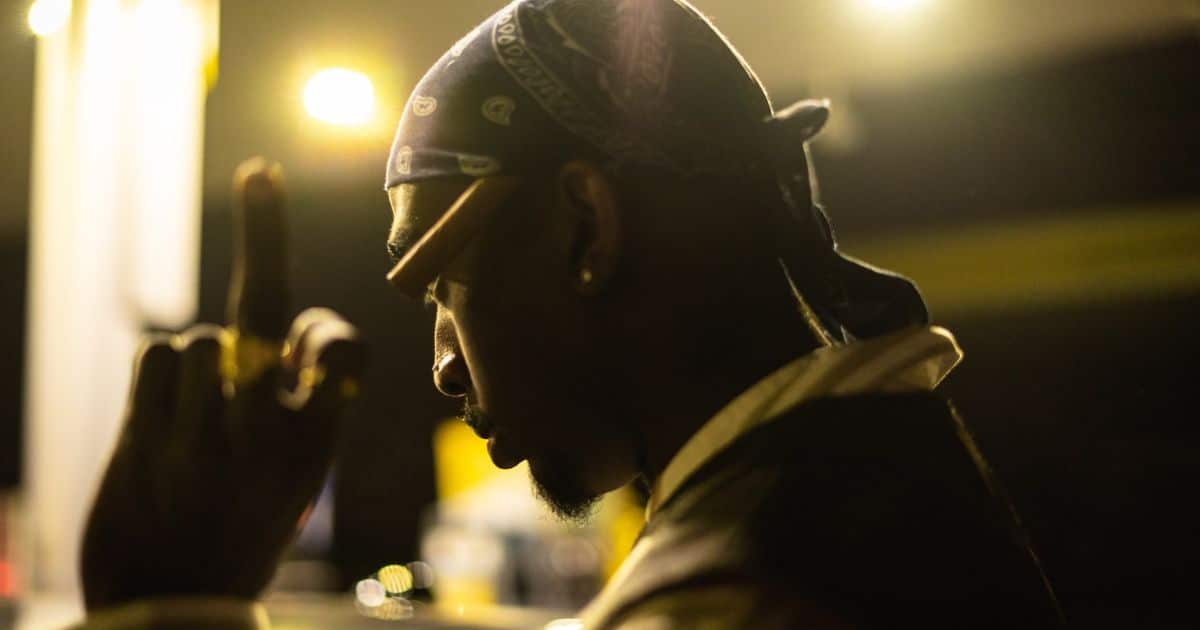Tupac Shakur was not only a talented rapper and actor, but he was also an avid reader and a deep thinker. Throughout his life, books played a significant role in shaping his mind and influencing his artistry. In this article, we will delve into the literary journey of Tupac Shakur, exploring the books that had a profound impact on his life, music, and activism.
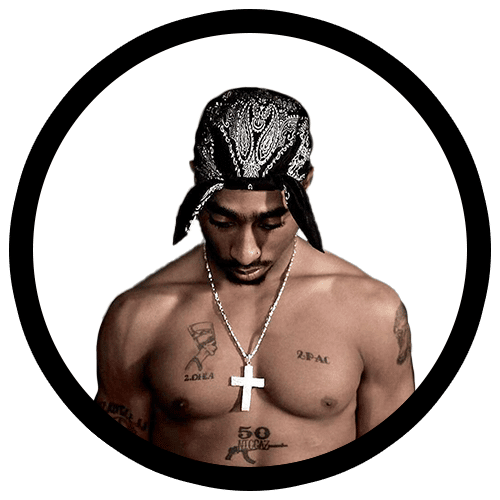
Tupac Clothing & Merchandise
Show your respect for one of the greatest legends in hip-hop: 2Pac. Get ready to step up your style game with a stunning range of Tupac Amaru Shakur merchandise, from vintage t-shirts and baseball jerseys to unique bomber jackets! Don’t miss this opportunity – honor his legacy by sporting some must-have Makaveli apparel at unbeatable prices. Hustle those streets like Pac and look the hottest in town – grab yours now!
The Role of Books in Tupac’s Life
From a young age, Tupac found solace and inspiration in books. Growing up in a tumultuous environment, literature became his escape and an avenue for self-expression. Books allowed him to explore different worlds, gain knowledge, and develop a critical perspective on social issues. They provided him with a sense of purpose and a platform to articulate his thoughts and emotions.
Tupac’s reading habit was not just a pastime; it was a lifelong passion that fueled his intellectual growth and artistic development. He believed that books had the power to transform lives and challenge societal norms. Through reading, he sought to understand the world around him and find his place within it. This voracious appetite for knowledge and literature would ultimately shape his identity as an artist and an activist.
Tupac’s Reading List: The Books That Shaped His Mind
“The Autobiography of Malcolm X” by Malcolm X and Alex Haley
One of the most influential books in Tupac’s life was “The Autobiography of Malcolm X.” This powerful memoir chronicled the life of Malcolm X, a prominent civil rights activist. Through Malcolm X’s journey of self-discovery and transformation, Tupac found inspiration and a deeper understanding of the struggles faced by the Black community. This book instilled in him a sense of pride and a desire to fight against racial injustice.
“The Art of War” by Sun Tzu
“The Art of War” by Sun Tzu, an ancient Chinese military treatise, resonated deeply with Tupac. While the book primarily focuses on military strategy, Tupac saw its relevance in navigating the challenges of life. He embraced the principles of resilience, adaptability, and strategic thinking outlined in the book. Tupac believed that these principles were applicable not only in warfare but also in personal growth and social activism.
“The Prince” by Niccolò Machiavelli
Niccolò Machiavelli’s “The Prince” was another book that left a lasting impression on Tupac. This classic work explored the nature of political power and the strategies employed by rulers. Tupac saw parallels between the manipulative tactics described in the book and the realities of the music industry and societal power dynamics. “The Prince” sharpened his understanding of power structures and shaped his approach to navigating the complex world he inhabited.
“The Collected Poems of Langston Hughes” by Langston Hughes
Langston Hughes, an iconic figure of the Harlem Renaissance, captivated Tupac with his poetry. “The Collected Poems of Langston Hughes” became a cherished volume in Tupac’s reading list. Hughes’ evocative verses about the African American experience deeply resonated with Tupac’s own struggles and aspirations. Through Hughes’ poetry, Tupac found solace and a sense of connection to his cultural heritage.
“The Bluest Eye” by Toni Morrison
Toni Morrison’s “The Bluest Eye” explored themes of beauty, identity, and race, which deeply impacted Tupac. The story of a young Black girl’s pursuit of beauty and acceptance in a society that devalues her fueled Tupac’s understanding of the destructive effects of systemic racism. “The Bluest Eye” heightened his awareness of the importance of self-love and acceptance, themes that would later permeate his music and activism.
“The Souls of Black Folk” by W.E.B. Du Bois
W.E.B. Du Bois’ “The Souls of Black Folk” provided Tupac with a profound analysis of the African American experience. This seminal work examined the duality of being Black in America, the struggle for civil rights, and the importance of education. Through Du Bois’ thought-provoking essays, Tupac gained insight into the historical context of racial inequality and the ongoing fight for social justice.
“The Catcher in the Rye” by J.D. Salinger
J.D. Salinger’s “The Catcher in the Rye” resonated with Tupac on a personal level. The novel’s protagonist, Holden Caulfield, grapples with feelings of alienation and disillusionment, much like Tupac himself. The book spoke to Tupac’s own experiences of feeling disconnected from society and struggling to find his place in the world. “The Catcher in the Rye” reinforced his belief in the importance of authenticity and staying true to oneself.
“1984” by George Orwell
George Orwell’s dystopian novel “1984” had a profound impact on Tupac’s worldview. This chilling portrayal of a totalitarian society served as a cautionary tale for Tupac, highlighting the dangers of government surveillance and the erosion of individual freedoms. “1984” fueled his skepticism of authority and his commitment to fighting against oppression.
“The Grapes of Wrath” by John Steinbeck
John Steinbeck’s “The Grapes of Wrath” exposed Tupac to the harsh realities of poverty and social inequality. The novel’s depiction of the Great Depression and the struggles of migrant workers resonated deeply with Tupac’s own experiences growing up in poverty. “The Grapes of Wrath” reinforced his empathy for the marginalized and his determination to give voice to the voiceless.
Tupac’s Favorite Books and Their Impact on His Music and Activism
Tupac’s favorite books were not just sources of inspiration; they also influenced his music and activism. The themes explored in these books became recurring motifs in his lyrics, reflecting his desire for social change, racial equality, and personal transformation. Tupac used his music as a platform to shed light on the issues he cared about, drawing from the lessons learned from his favorite books.
For example, the influence of Malcolm X’s autobiography can be seen in Tupac’s lyrics that address racial injustice and the struggle for empowerment. Similarly, the principles of resilience and strategic thinking from “The Art of War” permeate his songs that speak to the challenges faced by the Black community. Tupac’s favorite books provided him with a rich tapestry of ideas and perspectives that he weaved into his art, elevating his music beyond mere entertainment.
Where to Find Tupac’s Reading List and Recommended Books
If you’re curious about exploring the books that shaped Tupac’s mind, there are several resources available. The first place to start is by referring to his interviews and speeches where he often mentioned his favorite books and authors. Additionally, there are biographies and documentaries that delve into Tupac’s literary interests, shedding light on the books that had a profound impact on him. Online platforms and bookstores dedicated to hip-hop culture and literature also provide curated lists of books recommended by Tupac.
It is worth noting that Tupac’s reading list is not only a testament to his intellectual curiosity but also a reflection of the socio-political climate of his time. These books offer valuable insights into the struggles and aspirations of the African American community, making them essential reads for those interested in understanding Tupac’s legacy and the larger context in which he operated.
Tupac Merchandise
-
 Cool Tupac Shakur Timberland Design Zip Up Hoodie
Cool Tupac Shakur Timberland Design Zip Up Hoodie -
 Tupac Makaveli Shakur Iconic Timberland Hoodie
Tupac Makaveli Shakur Iconic Timberland Hoodie -
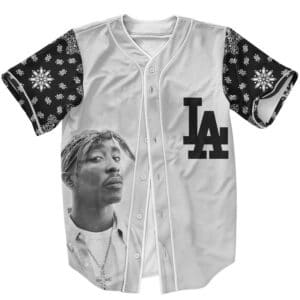 Hip Hop Gangsta Rapper 2Pac Amaru Shakur LA Dope Baseball Jersey
Hip Hop Gangsta Rapper 2Pac Amaru Shakur LA Dope Baseball Jersey -
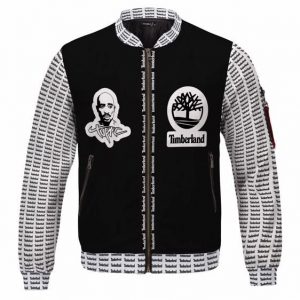 Timberland Logo Tupac Amaru Shakur Dope Varsity Jacket
Timberland Logo Tupac Amaru Shakur Dope Varsity Jacket -
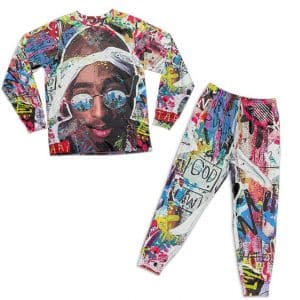 Rap Icon Tupac Multicolor Graffiti Art Pyjamas Set
Rap Icon Tupac Multicolor Graffiti Art Pyjamas Set -
 Dope 2Pac Shakur Portrait Notorious Black Pajamas Set
Dope 2Pac Shakur Portrait Notorious Black Pajamas Set -
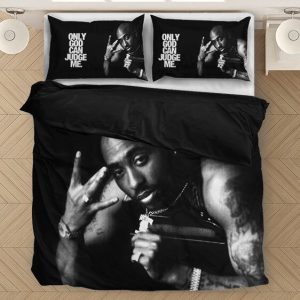 2pac Shakur Only God Can Judge Me West Side Dope Bedding Set
2pac Shakur Only God Can Judge Me West Side Dope Bedding Set -
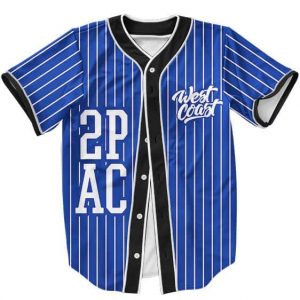 2Pac Shakur White on Blue West Coast Hip Hop Baseball Jersey
2Pac Shakur White on Blue West Coast Hip Hop Baseball Jersey -
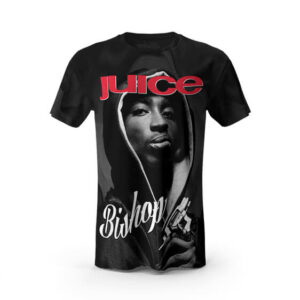 Juice Bishop Power & Respect 2Pac Graphic Tee
Juice Bishop Power & Respect 2Pac Graphic Tee
Conclusion: The Lasting Legacy of Tupac’s Literary Journey
Tupac Shakur’s literary journey was a testament to the power of books to shape minds and inspire change. The books that he read and cherished became an integral part of his artistic expression and activism. Through literature, Tupac found solace, knowledge, and a sense of purpose. His favorite books and their themes continue to resonate with audiences today, reminding us of the enduring legacy of a man who used his voice to challenge the status quo and fight for justice.
As we explore the literary journey of Tupac Shakur, we gain a deeper understanding of the multifaceted artist behind the music. His voracious appetite for knowledge and his commitment to social change serve as an inspiration to future generations. Tupac taught us that books have the power to transform lives, ignite passion, and shape the world. Let us continue to embrace the written word and honor Tupac’s legacy by exploring the books that shaped his mind, and in turn, our own.
If you’re interested in delving into the books that influenced Tupac Shakur, start by reading “The Autobiography of Malcolm X,” “The Art of War,” and “The Collected Poems of Langston Hughes.” These books provide a glimpse into the intellectual journey of one of the most influential artists of our time. Let Tupac’s literary legacy inspire you to explore new worlds and challenge your own perspectives.

